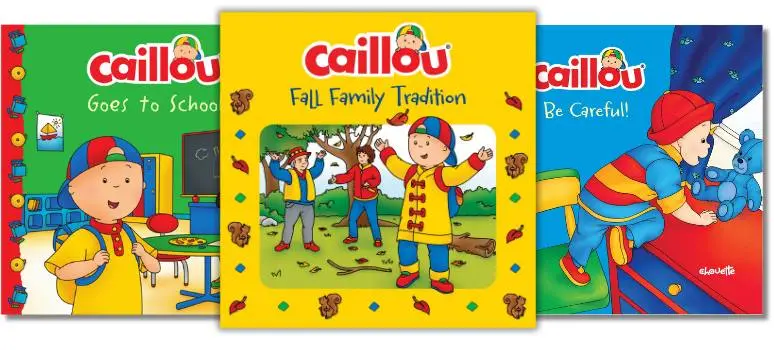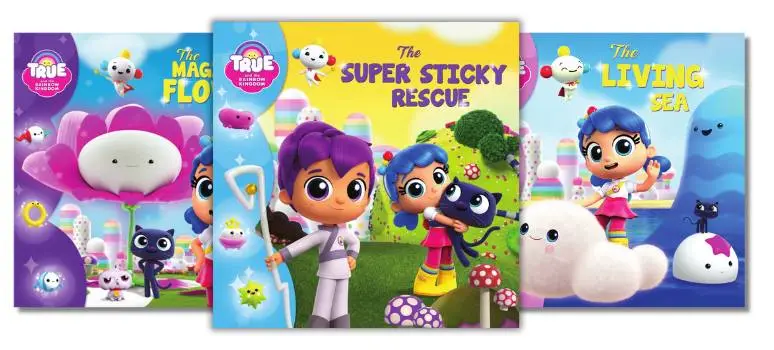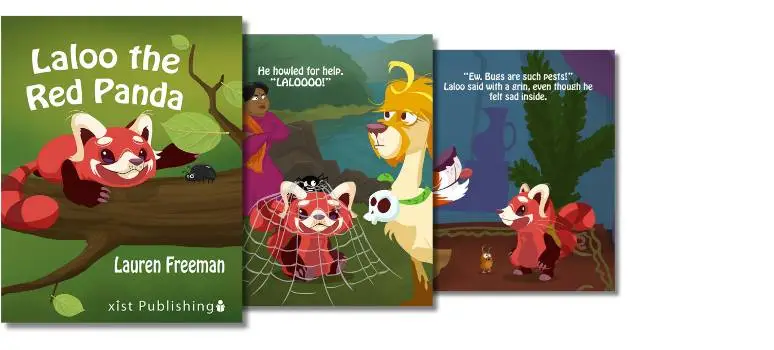Is your child a reluctant reader? Motivating reluctant readers can be difficult - especially if you’re unsure why your child doesn’t like to read. Luckily, there are numerous strategies parents can use to help even the most reluctant readers find joy in reading.
Below, we’ll discuss the characteristics of a reluctant reader and explore several tips for motivating reluctant readers. Plus, we’ll share seven of the best books for reluctant readers - so you can help your child learn to love books!
Characteristics of a Reluctant Reader
Why Your Child is Reluctant to Read
What makes a reluctant reader?
You’ve likely heard the term “reluctant reader” before. But what exactly is a reluctant reader, and what are the characteristics of a reluctant reader?
Reluctant readers may display varying characteristics. That said, there are a few telltale signs that your child is reluctant to read.
- Avoids or refuses to read - your child may demonstrate this through actions or by telling you they don’t want to read.
- Disinterested in reading - often, reluctant readers will explain that they “cannot read” or verbally express a dislike for reading. A child who is uninterested in reading may also have difficulty finding books they enjoy.
- Easily distracted while reading - some reluctant readers are proficient readers. However, they are easily distracted when reading and will move on to a different, preferred activity.
Now that you know what makes a reluctant reader, let’s examine the different types of reluctant readers.
What are the different types of reluctant readers?
There are three different types of reluctant readers. Understanding these different types can help parents in motivating reluctant readers at home.
The three types of reluctant readers are:
1. Children who experience difficulty reading and are aware that they struggle.
2. Kids who can read but are more intrigued by other activities. For example, video games, sports, playing with friends, etc.
3. Children who are very specific about what they read. Often these reluctant readers are hesitant to read books that an adult has selected.
Does your child fall into one of these categories? If so, you’re probably wondering - what causes reluctant readers, and how can I motivate my child to read? Let’s take a look.
What causes reluctant readers?
There are several reasons why a child may be disinterested or unwilling to read. The most common causes for reluctant readers include:
- Reading difficulties. Reluctant readers may struggle with specific reading strategies or skills that support reading success. For example, phonological awareness, vocabulary, decoding, fluency, comprehension, etc. Alternatively, a child may become reluctant to read because they are reading books that are too difficult.
It is imperative that children feel successful when reading. That’s because when a child perceives themself as a “poor reader,” it can impact self-esteem and cause anxiety around reading. Therefore, in this case, it is vital to identify the underlying reason for your child’s reading difficulties. With this information, you can provide the support they need to develop their reading skills.
Does your child struggle with reading? Check out How to Help a Child with Reading Difficulties to learn how to help your child improve their reading skills at home.
- Trouble finding books of interest. Reluctant readers can be proficient readers but have difficulty finding books on topics they enjoy.
It is essential that a child is interested in the books they read, as fascinating topics will hold their attention and help them find joy in reading. Therefore, if your child is reluctant to read because they cannot find a book that interests them, focus on providing the resources they need to find books they’ll love!
Check out our list of the best books for reluctant readers below to discover stories that will capture your child’s attention.
Now that you know more about what causes a child to be reluctant to read, let’s look at some helpful tips for motivating reluctant readers.

Tips for Motivating Reluctant Readers
Motivating reluctant readers may seem difficult - but we’re here to help! There are many strategies parents can use to motivate a child that is reluctant to read.
Here are some practical tips for motivating reluctant readers.
1. Identify Why Your Child is Reluctant to Read
There are many reasons a child may be reluctant to read (more details above). Therefore, the first step in motivating reluctant readers should be to identify why they are hesitant to read. This will help you provide personalized support. For example, if your child struggles with phonological awareness, you can help improve their reading by teaching phonics at home.
2. Provide Access to a Wide Variety of Books
Providing access to a variety of books will allow your children to explore different genres and topics. As a result, they will be able to find books that interest them, promoting a love of reading.
The best (and most convenient) way to provide your child access to a variety of books is by using a reading app for kids - like Booka. Reading apps like Booka include hundreds of books on numerous topics at the touch of a button! Thus, your child will be sure to find books they love!
3. Allow Your Child to Be the Guide
Do not force your child to read. It is essential to foster an internal drive and love for reading rather than having your child read to please you. This is also true when it comes to rewarding a child for reading. Rewards, such as sticker boards, are not recommended, as these create external motivation. Instead, focus on developing internal motivation to promote a love of reading and learning.
4. Read in Front of Your Child
Reading your own books in front of your child demonstrates that you value reading. In addition, children often mimic their parent’s behavior. Thus, if you make a habit of reading often, your child will likely develop the same habit. As a result, you can raise a reader!
5. Give Choice, But Not Too Much Choice
It can be helpful for reluctant readers to choose their own books. This way, they can select a story that interests them. That said, do not overwhelm your child with choices. Instead, limit their options to make the choice more manageable. For example, rather than having them choose from their entire book collection, set out ten possibilities.
6. Create a Reading Space
Create a cozy reading space in your home. This will provide your child with a comfortable place to relax and enjoy a book. Building an inviting space like this also demonstrates that you value reading and will encourage your child to do the same.
7. Point Out Your Child’s Strengths
When reading with your child, offer praise and point out what they are good at. For example, you might say - “I am proud when I see you trying to sound out the word on your own!” or “I notice that you read those words with confidence!”. This will help build your child’s confidence and help them see themselves as a proficient reader.
8. Incorporate Your Child’s Interests
It can be helpful to find books that incorporate your child’s interests, as this will motivate them to read. For example, look for books that include their favorite TV characters or books about video games they love.
9. Use Audiobooks
By introducing your child to audiobooks, you open the door to hundreds of stories they may be unable to read independently. As a result, your child will be exposed to fluent reading and have the opportunity to practice their reading comprehension.
What are the best audiobooks for reluctant readers? Check out some of the most popular stories here - Best Audiobooks for Kids.
10. Read Aloud to Your Child
Like audiobooks, reading aloud to your child allows them to explore books that may otherwise be too difficult to read. Reading aloud also lets your child hear fluent reading and explore stories through conversation.
To ensure your child gets the most out of this time, read books on various genres and topics. For example, fiction, non-fiction, magazines, cookbooks, graphic novels, joke books, etc.
11. Have Family Reading Nights
To help create a culture of reading in your family, host regular reading nights! This could be just one or two nights a week. For a successful reading night, let your child select a book, then have your family read it together.
12. Help Your Child Create Their Own Story
Have your child create a story about their life. Be sure to write the story down for later. This exercise shows children the value of storytelling. And, with the story recorded for safekeeping, they can reread it - and share it with others!
The Best Books for Reluctant Readers
Not all kids’ books are created equal! For reluctant readers, it’s crucial to find stories that are engaging. Therefore, the best books for reluctant readers are often:
- Books based on known characters, TV shows, video games, etc.
- Joke books
- Graphic-heavy books
To help parents in motivating reluctant readers, we’ve created a list of some of the best books for reluctant readers.
Books Based on Known Characters, TV Shows, Video Games, etc.
In most cases, there’s nothing more interesting to a child than characters, tv shows, video games, and other pop culture references. And, when a child is interested in a book, they are more likely to be motivated to read it. Thus, these types of books are great for reluctant readers.
Here are some of the best books for reluctant readers based on known characters, tv shows, and video games.
Caillou
The Caillou book series follows the well-known TV character Caillou as he explores the world and learns new things.
Want to read the Caillou book series with your child? These children’s books are available on the Booka reading app for kids.
True and the Rainbow Kingdom
Follow True and her friend Bartleby as they help the citizens of Rainbow Kingdom solve their problems!
Access the True and the Rainbow Kingdom book series on Booka!
Joke Books for Reluctant Readers
Joke books offer a great way to engage reluctant readers. That’s because they eliminate the need to read a book from start to finish. Rather, joke books allow the reader to choose which pages and jokes they read and which they do not. Joke books also offer short passages of text that are more manageable for reluctant readers. As a result, joke books are some of the best books for reluctant readers.
The books below include short jokes with simple pictures that will capture and hold your young reader’s attention.
Knock Knock, Lettuce In!
Knock Knock, Lettuce In! pairs jokes with colorful illustrations. Laugh out loud with your child as you read through this collection of witty vegetable jokes.
It’s Snot Fair!
Bodily functions are the star of the show in It’s Snot Fair! This joke book is sure to make reluctant readers giggle!
Knock Knock, Woof Woof!
Knock Knock, Woof Woof! is the perfect book for dog-loving little ones looking for a laugh. You’ll celebrate dogs as you chuckle along to this illustrative joke book.
You’ll find all the joke books above (and more!) on the Booka app.
Graphic-Heavy Books for Reluctant Readers
Graphic-heavy books allow a child to engage with a story visually. Thoughtful images help support reading comprehension while reducing the pressure to comprehend written words. Thus, graphic-heavy stories help encourage reluctant readers to pick up and explore books.
Below are some of the best graphic-heavy books for reluctant readers.
The Dream Dragon
Follow along as the dream dragon, dinosaurs, pirates, and superheroes help keep nighttime safe by protecting against nightmares.
Want to read this graphic-focused book? You’ll find The Dream Dragon on Booka!
Laloo the Red Panda
Laloo the Red Panda follows the adventures of Laloo, a red panda, on their journey in India!
Booka Makes Motivating Reluctant Readers Easy
With hundreds of books and topics to choose from, Booka makes motivating your reluctant reader simple! You’ll find all the books above and other engaging books for reluctant readers on the Booka reading app for kids.
Download Booka today to try 7 days for free!






